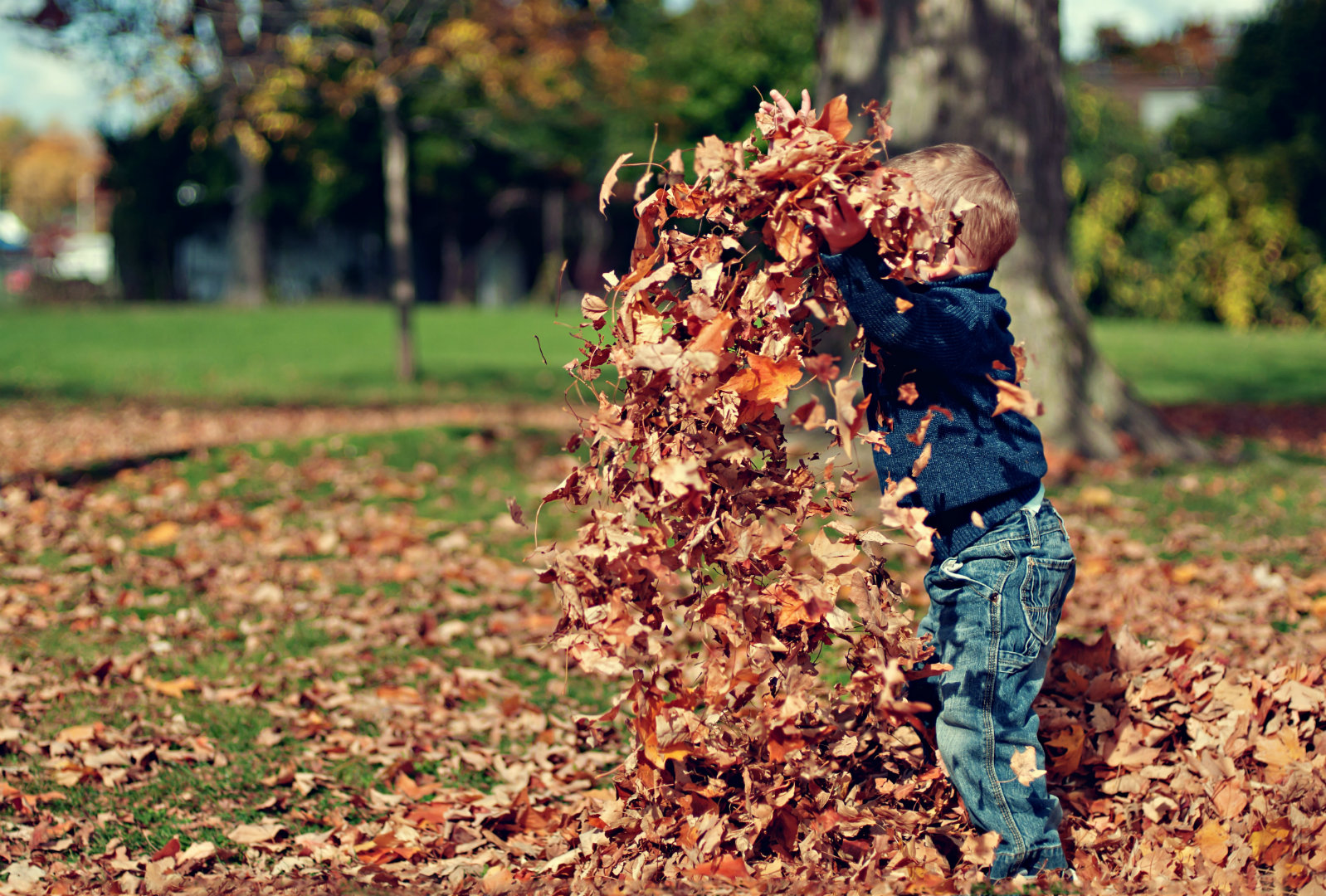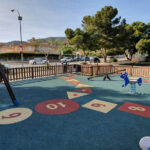
Permitting children to play outdoors, and moving them to do so, is essential for the development of their cognitive capabilities and interpersonal communication abilities. Outdoor play also contributes to them being more independent and allows them to discover the environment.
If you are like most parents, you know that children are spending more time inside their homes – primarily glued to TV screens and computer games, rather than spending time outdoors. The continuous decline in the overall number of children that are actively playing outside has become a serious concern for health professionals all over the world. The majority of moms and dads would agree that they would want their children to be healthy, physically active, and overall well-rounded individuals. However, the only way of accomplishing these goals is by motivating them to spend more time playing outdoors.
So it ultimately boils down to the question of why kids require outdoor play? Well, outdoor recreation is an important part of growing up – logically no? Many developmental tasks that children must learn and attain include risk-taking, exploring, along with brain development – can only be achieved through playing outside. On top of this, enabling children to play outside allows them to explore the environment, gets them to breathe fresh air and learn how to look after their surroundings. The activities they discover outside promote their senses through their touch, what they feel, hear, and see.
If you encourage your child to spend time outdorrs from a young age, away from all the digital gadgets, then you are actively promoting your kid’s physical health and wellbeing, however also playing an important function in enhancing their emotional and intellectual health and wellbeing.
Keep reading to find out a few critical reasons we believe are important for why children require more outdoor play.
1. Improved Motor Abilities
The only location where your kids can freely run, leap, toss balls, pull things, lift and carry various objects and do all sorts of imaginative things is outdoors. You may argue that your child does the same at home, however, the regulated indoor environment restricts their ability to explore and experiment with brand-new things and surroundings.
As kids spend more time outside, they tend to establish advanced motor abilities in comparison to their same-aged peers who end up staying indoors (at home). When playing outside, kids likewise get engaged in basic aerobic exercises and gain important motor skills while pulling, tugging or pushing playground equipment, trees and sticks in the woods, or throwing rocks into a lake.
Scientific studies also show that kids will burn more calories playing outside than when they play in a similar manner at home. This assists to lower their risk of establishing weight problems by enhancing their muscle strength and bones.
Playing outdoors also helps them absorb significantly more vitamin D which is needed for strong bones. On top of this, permitting kids to evaluate, test, and extend their physical abilities, they likewise become more confident in their motions and enhance their decision-making capabilities.
2. Lowers Body Mass Index
In 1980, only seven percent of kids in the world were thought to be obese. Around 40 years later, research reveals that roughly one in three children are obese. The main reason behind the abrupt boost in the numbers is an extreme modification in our lifestyles.
Today, a growing number of kids are fed unhealthy foods and dissuaded to take part in outdoor play. Children who invest more time outdoors are less likely to develop weight problems due to the fact that they are physically active (seems fairly straight-forward) and burn more calories compared to their indoor equivalents.
Playing and spending time outside means children are spending time away from their video games, TVs, and mobile phones. It implies leaping, running, strolling, climbing up, pulling, pressing, and usually burning more calories, through a wide array of activites. There is in fact a direct correlation between a kid’s body mass index and the quantity of time they are permitted to spend outside playing.
The longer the kid is enabled to play outdoors, the lower their body mass index and vice versa. Hence, if you don’t want your kids to develop weight problems and related complications, make sure you begin taking them outside more regularly.
3. Understanding The World
Outdoor play assists kids to discover a lot of things about the world. How do plants grow? How do flowers smell? What can I make and do with snow or ice? How do butterflies fly? How do I build a tippee? How does mud feel? Why do we slide down and not up? The list goes on and on…
Essentially, outdoor play offers your child an unbelievable possibility to comprehend why some things take place the way they do. Additionally many of the lessons they learn outside will stick with them as is comes along with a lot of fun.
In the outside environment, kids can find out about ecology, math, gardening, science, construction, vocabulary, farming along with the experience of wondering and comprehending the different times of the day, weather conditions, and far more.
Children will also tend to remember what they learned because it was meaningful and concrete. It’s like “learning on the job.” They learn much more than a lot of basic information about their surroundings, but they do it in an effective manner while playing.
4. Improve Sensory Skills
An optometry and vision science research discovered that children who invest the majority of their time playing outside tend to have better long-range vision than their equivalents who are always indoors. Especially toddlers and young preschoolers tend to discover many things through their senses.
Have you ever watched a childs eyes and face light up when they are allowed to consume a berry in the forest, discover a new animal or insect, view water falls, or stomp in a puddle?
Children who spend a majority of time inside often glued to the tv and/or some sort of gaming gadget only utilize two senses, hearing and sight. This, naturally, can be harmful in their development of sensory and perceptual abilities.
5. Improved Peer-To-Peer Relationships
When your children play outside, they will often meet and interact with other children. Technically, it implies that they become aware of other individuals around them from outside their family scope and through engagement will establish relationships with them.
They will find out how to create and sustain friendships. This also is a reason why children who spend more time outside playing with their peers, eventually are less likely to bully their peers.
Outside play requires creativity and teamwork, which helps kids develop favorable interactions with each other. That does not mean that there won’t be disagreements or arguments over whose turn it is to shoot a basket or slide down first.
However, in general, children who play outdoors will often know how to agree and interact with their peers even when they face disagreements. As parents, it may often not seem so, however, they will always work towards discovering commonalities.
6. Assists Them In Establishing A Sense Of Independence
Playing outside can likewise help your kids develop their sense of self-reliance or independence. Although as a parent you may be close by the whole time, children will generally feel a sense of liberty and independence when they are left to play on their own, especially in playground environments.
They get the opportunity to discover and take risks (like climbing up a pyramid net) without seeming like someone is holding them back. Allow them to discover and explore. Give your children the encouragement to find new things and figure out results by themselves.
They can create brand-new games with their friends, discover their abilities and self-learn what they can do and where they need to improve for the next time.
The confidence that children build through this sense of freedom and self-reliance will help and enable them enormously as they continue to grow.
7. A child can be a child
As parents, we have become so accustomed to a schedule – eat, work, play a little, work, etc. that we forget that basic childhood needs to truly play. Childhood is all about running, leaping, swinging, rolling, yelling, making big messes, hiding, and doing all types of things that may seem odd to adults, but are normal for children. Youth is never ever about television, video games, and smart devices. That is what society in a fast-moving world has become. Give your child a device, so you can get back to work. Think twice where your priorities are.
Many of the amazing things that can make your youngster enjoy his/her youth can not be done inside. It is important to take your kid outside and let them have a remarkable childhood experience. Immerse them by spending quality time with them outdoors and guide them into discovering and exploring.
We as parents need to learn to stop containing and controlling our kids within our homes. Better self-management will create expereinces for you as a parent together with your child by letting them be outdoors, even if that means that email needs to wait. The outside environment will satisfy your child’s basic needs for adventure, experimentation, and freedom.
Children need a chance to check out the unknown, the adventurous, and the unpredictable. They likewise require to discover nature and determine how things work within that environment. Such things can not be done inside your home, all the time.
8. Increase Attention Spans
Finally, kids who spend a lot of time playing outdoors tend to be more curious, self-directed, and most likely to remain more focused for longer periods of time. Children who invest a majority of their time inside with little exposure to the outdoors tend to lose focus much faster and tend to fail to increase their attention spans as the years continue.
Studies have actually revealed that kids detected with attention deficit hyperactivity disorder (ADHD) tend to reveal fewer symptoms when they are allowed to be outdoors playing more.
Summary
One of the most vital things you as a parent can do from an early age with your children is to encourage your young one to be outside more. Even if that means you enabling them to be outside and copy you in discovering and exploring. Whether your child is a year old or 12, set the foundations to ditch the screen and take pleasure in quality time outside in the world.
Organize for weekends outside, since the work week often comes with many other responsibilities. If you can fit in numerous visits to the playground or walks and strolls (eg: with a pet) together. Then on those weekends be outside all day in parks, play grounds, or the woods and help your child appreciate being outdoors. It doesn’t matter whether they are playing alone or with friends.
Ultimately being outside and growing up outdoors enables them to explore, be imaginative, and provides an opportunity to comprehend the natural environment, along with teaching them important life skills to help them grow into a responsible person.









